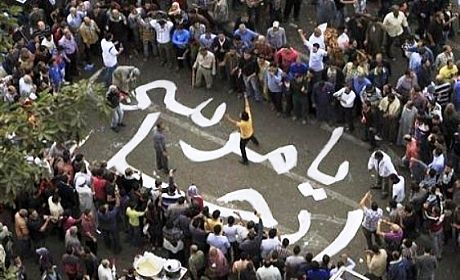You Are At Fault Mr. President!

What happened in Egypt, where 4 Shiites were killed in a dispute in a village, is an issue which has caused many protests. The reason is that, despite the anti-Shiite wave which has recently stormed the region, and which is even called the Shiite-Sunni war, such confrontations had never taken place in Egypt before. What is the root, in your opinion, of such an incident?
This is very unfortunate, because the residents of a village, assuming that they were confronting several infidels, attacked a house where a few Shiites had gathered to celebrate the Sha’ban Feast and set it on fire, which led to the killing of these people. If only a few people were involved in these killings, the consequences would have been different, but when a large group of them consider these people infidels and kill them based on negative propaganda, the issue becomes very significant. This incident is related to propaganda and its impacts on the public opinion, especially the non-elites of a society. Of course, the roots of this dispute are not clear yet. There are numerous questions in this regard: Has there been another story behind this event which has ultimately led to a conspiracy against them? How many people were involved in these killings? Who has provoked the residents of this village, or were they affected by strong propaganda which is launched these days against the Shiites, not only in Egypt but also in the whole region? If we are to look for those who are guilty, many will be included, such as the Salafis and the Muslim Brotherhood, who have gained power in Egypt, and of course the Israelis who have taken numerous measures against the Shiites and provoked the people.
How would you assess the role of Mohammad Morsi, as the president of Egypt? Can it be said that these incidents are inflamed by his positions?
Yes, Mohammad Morsi is not only guilty, but also responsible in this case. The reason is that two weeks ago, he participated in a huge meeting with the Takfiris. This is while the president of Egypt, who is affiliated with the Muslim Brotherhood and should use a moderate discourse, is not expected to take such measures. In this meeting, he made certain statements and chanted slogans which were practically in line with the theory of the Takfiris. The speech made by Mohammad Morsi astonished many circles and these speeches certainly affect the public opinion, especially those who are illiterate. The issue is that the villagers and the non-elites in the Arab world have no information about the Shiites and are not aware of their beliefs. Their assumption is based on the propaganda which considers Shiism as a religion separate from Islam and an enemy of it. Unfortunately, the Shiites are not allowed to explain the issues related to their beliefs; this is while the Fatemi dynasty, which had ruled in Egypt for many years, was Shiite, or the al-Azhar University, which is considered as a big Islamic base, was constructed by the Shiites. There has been a big department in this university which attempts to bring closer the Islamic sects, and Shiism has even been taught there. Even along this line, there is the fatwa of the Great Sheikh Mahmud Shaltut, who has spoken about the righteousness of Shiism. In other words, the whole history of Egypt is filled with the presence and cooperation of the Shiites. Nevertheless, during recent weeks and months, huge propaganda has been launched to introduce the Shiites as anti-Islamists, and it seems that the Salafis, the Muslim Brotherhood, and Mohammad Morsi himself have all been responsible in creating such conditions. The ban on the expression of Shiite beliefs by the government of Egypt and the intelligence service of that country is another problem. For example, the famous book “al-Morajeat”, which is a collection of ideological discussions between the Sheikh of al-Azhar in Egypt and the great Shiite scholar, Ayatullah Seyyed Abdul-Hussein Sharafuddin Amoli from southern Lebanon, is now banned in Egypt after having been published several times. In this book, the beliefs of the Shiites are explained and it seems that the Sheikh of al-Azhar is influenced by them and converted to Shiism. I assume that not only are the intelligence services and the Takfiris, alongside Qatar and Saudi Arabia, responsible in this anti-Shiite trend, but the Muslim Brotherhood has also played a significant role in this matter.
It is proclaimed that Iran supports the Shiites of the region. To what extent can it be said that the countries of the region highlight Iran’s role in creating such confrontations?
The issue that Iran supports the Shiites is an image which Iran’s enemies have built outside our country. The reason is that the issue of Palestine is very important in the foreign policy of the Islamic Republic of Iran. Iran supports the resistance and anybody, whether Shiite or Sunni and even Christian, who stands against Israel. As was the case with Hezbollah which gained Iran’s support due to its resistance against Israel while it occupied southern Lebanon. Iran also supports the Hamas and Islamic Jihad movements, both of which are Sunni and are established in the Gaza Strip. Iran supports the Palestinian groups residing in Damascus, which are secular but are active within the framework of the resistance. Therefore, the negative propaganda has been launched against Iran that it only helps the Shiites of the region. These types of propaganda have existed since a long time ago and the intelligence services of Israel, the US, Egypt, Saudi Arabia, and Qatar pretend that Iran supports the Shiites against the Sunnis and is against them, but this is just misleading propaganda.

